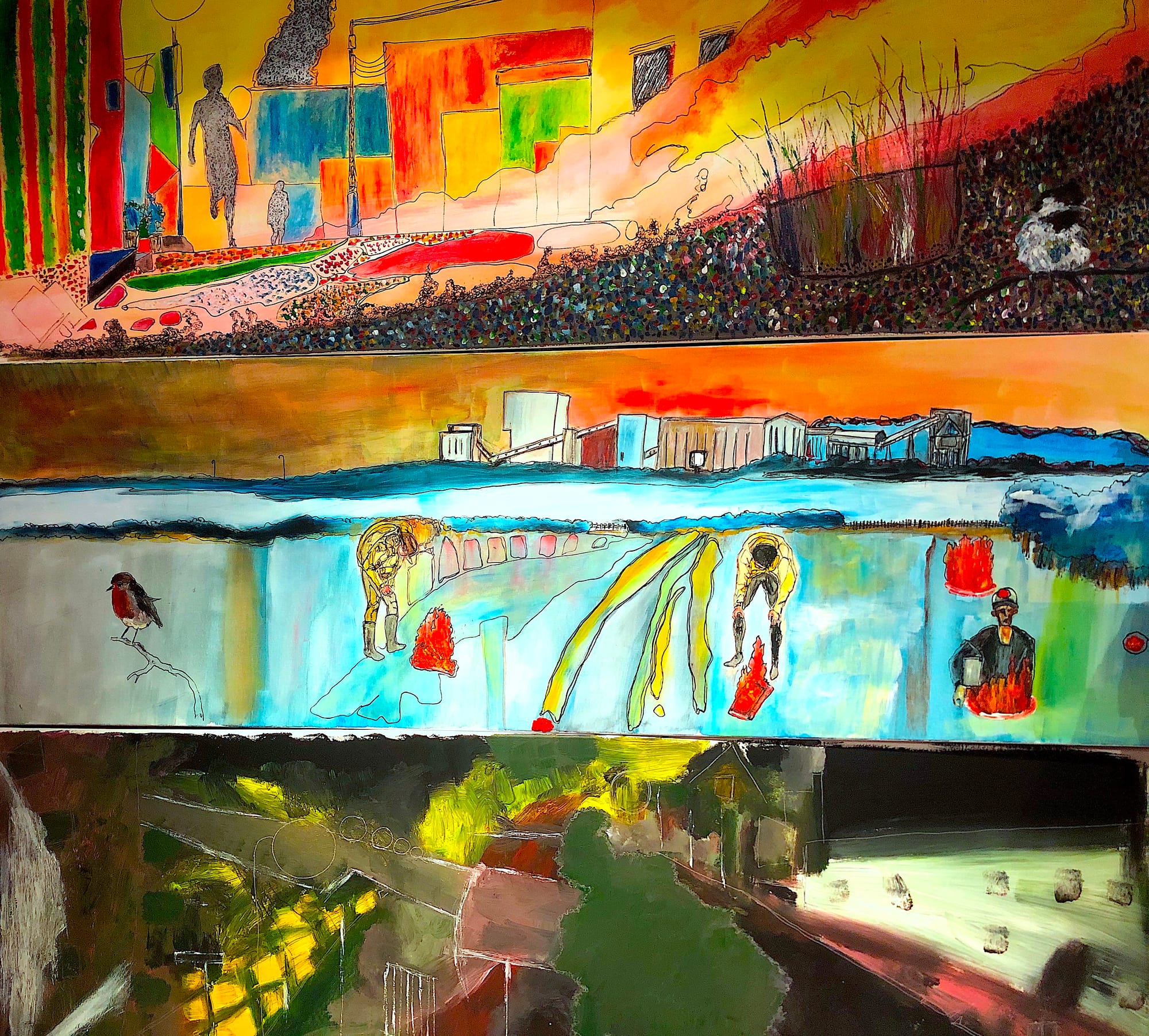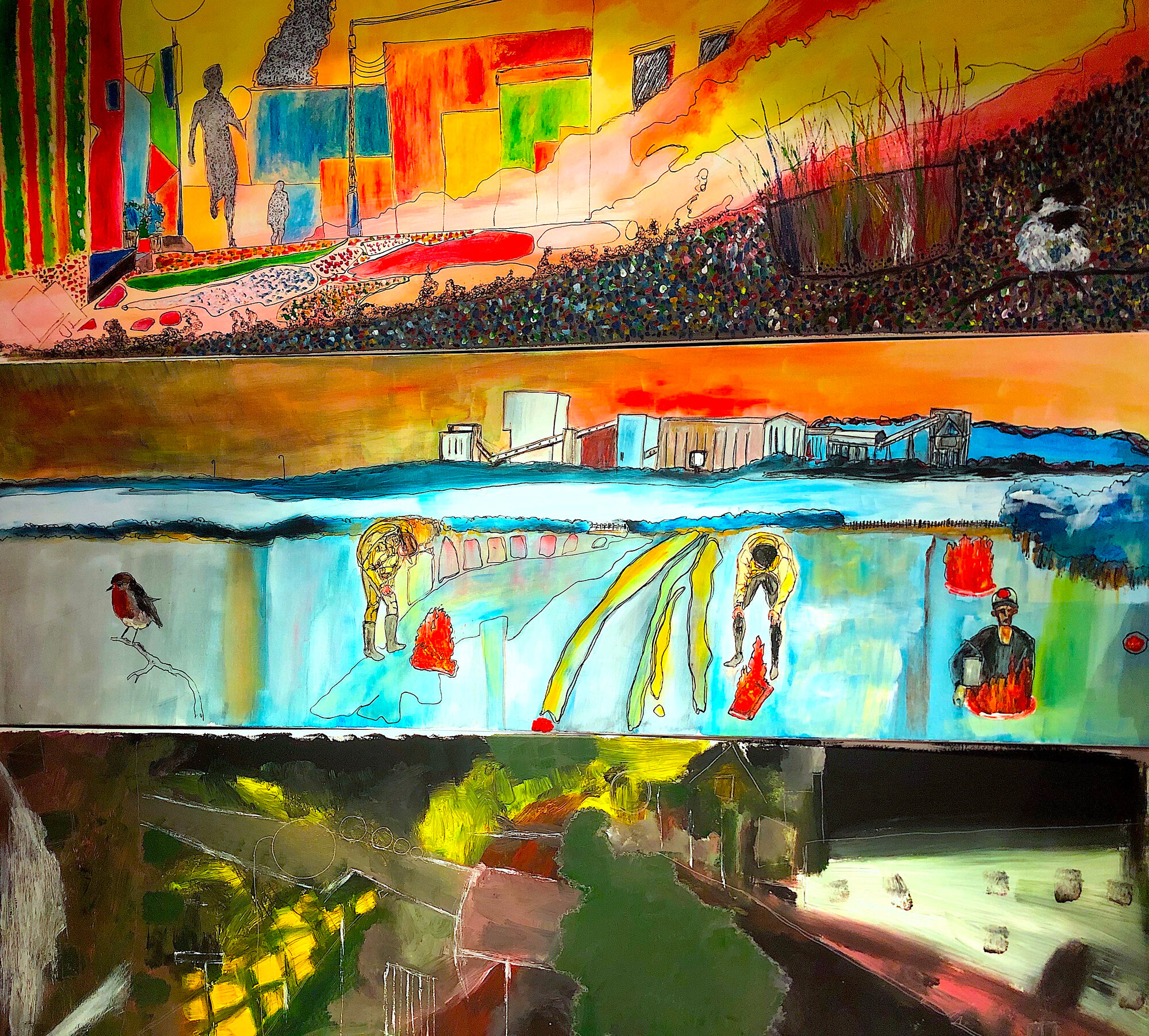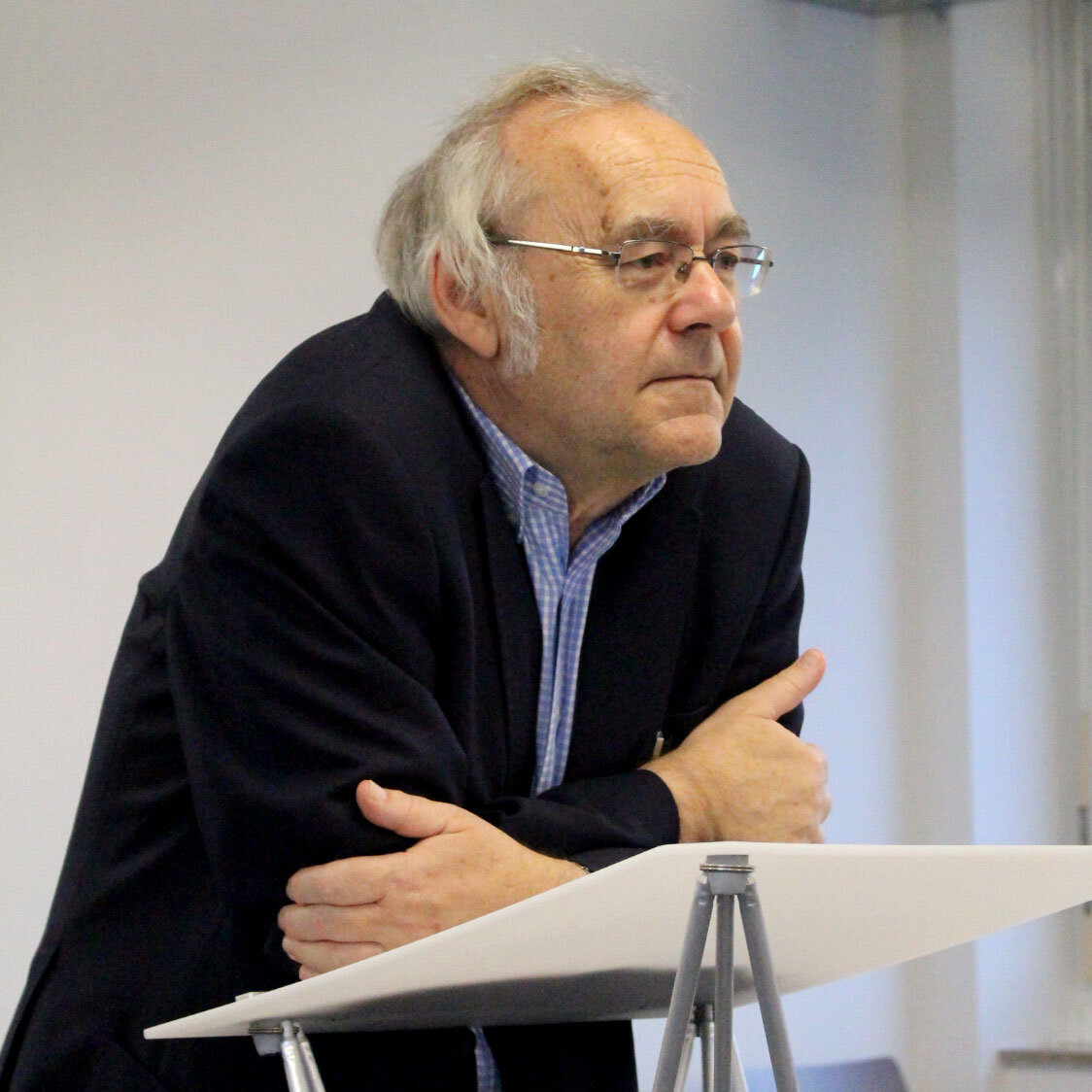The Flight From Contingency 7


65. Even the most radical relativism/constructivism refrains from an extreme approach/procedure of the kind that our talking constantly generates “parallel” to it objects or even worlds.
Such an unrestrained position, in which every blink of an eye and every beat of a tongue generates a new versum, would surpass even the homo-mensura-sentence (and each version of solipsism).
A proceeding that neither recognizes the resistance of an “I” nor other objects against descriptions would be without measure and goal.
66. The homo-mensura-sentence makes man the measure of all things – if not that they are, at least how they are.
Man as a criterion and an instance is excluded from relativism.
To be able to judge as an instance about the being or at least the so-being of things, a person must have an identity beyond the momentary state in which she makes her judgment.
She needs to be more than only the person-at-the-moment-of-the-judgment.Her judgment must have validity for her beyond the verdict, otherwise a talk of the identity of the person would not be possible.
67. The distinctions between appearance and being, between holding to be true and being true, are argumentative distinctions, that mark the relation between former and present opinions, in favour of which perhaps the former have been revised.
“Two souls can be dwelling in my breast and I can struggle with and within myself for a decision, various alternatives can be up for discussion and I can quarrel with myself” and inner conflicts are often in no way inferior to outer ones.
And if the inner conflict between two opinions has been decided in favour of one opinion – must I then speak of luck that it is this opinion for which I have decided and not that one? Or an agreement/correspondence between me and my opinion, which I stand by? The difference between holding-to-be-true and being true is thus not made out between the judgment about a thing and the thing but between the various judgments made about the thing by the person and the person – and it is the most recent judgment that will claim the status of being true.
68. In realism reality decides (directly or indirectly) about the utterances of man.
In an individualistic, man-related relativism the human individual decides about reality.
Reality as an instance is mute and man always knows its decisions only “second hand”.
The decisions of individualistic relativism are those that man makes her/himself, in agreement with her/himself. But s/he is still capable of error: s/he can revise earlier decisions in favour of later ones, if they are no longer in harmony with him/her as a person.
69. The measure, the criteria, the instances for the decision between true and false, between truth and error, appearance and being, perception and illusion, are at stake in all forms of dualism, from realism to the “minimal” relativist unit, the human individual.
Without such a measure we cannot judge whether or not the descriptions, statements and claims made on the language-level, correspond with the object-level lying in the beyond of discourse.
70. We need a regulative idea, so that discourses are steered in the direction of the beyond, so our cognitive efforts do not miss the given goal, so the discourses do not run chaotically, indeterminately and without direction, so the discourses are ordered and so that not everyone can assert everything equally.
71. “Truth is at stake”. (Karl Popper)
„The task of empirical science, like that of other investigative disciplines is to separate as thoroughly and efficiently as it can the true statements about the world from those that are false, and to retain the truths. The first duty of human knowledge must therefore be to explain how, if at all, such a separation can be achieved”.
(David Miller)
„My own views have only gradually emerged from the attempt to separate the true and justified from the erroneous and unfounded in widely accepted theories”.
(Günther Patzig)
„If philosophizing is to have any meaning at all, we must trust that we can prove or reject truth claims as intersubjectively valid through argumentative discourse.”(Karl Otto Apel)
„Philosophical discourse is determined by the pursuit of truth and objectivity“.
(Herbert Schnaedelbach).
„Science is the formation of rational truth-oriented beliefs“.
(Wolfgang Spohn)
„The search for truth is a structural component of culture or the human spirit“.
(Leszek Kołakowski)
„In physics the right theories prevail in the long run“.
(Anton Zeilinger)
„Truth is the daughter of time“
(held by many...)
„The task of science is to bring us closer and closer to objective truth“.(Steven Weinberg)
It is not surprising then, when it is demanded that: „Every academic has the duty to search for the truth.” (Mario Bunge)And those who do not follow it? „We should expel the charlatans from the university before they crowd out the serious searchers for truth“.
(Mario Bunge).
72. A successful search for truth is the goal and motivation of our cognitive efforts. This is a basic consensus for most philosophers, past and present.The philosophers differ, however, in their assessment of whether and how this goal can be achieved.
73. A reliable distinction between truth and falsehood offers the best guarantee against the danger of arbitrariness. It is not by chance that relativistic, constructivist, neopragmatist and other thinkers who neglect or disregard the goal of truth are not able to stop arbitrariness ...
74. Criticism of the concept of truth comes mainly from thinkers at the periphery of academic philosophy and not from its center.
The criticism of Nietzsche, Foucault or Derrida is directed not so much at other philosophers as against the conflation of truth and power.
The truth-criticism is not aimed against truth itself but against the purposes for which truth is used and the means by which it is enforced: against the abuse of truth.
75. The connection between truth and power was not demanded or even established by philosophers. This connection takes place where philosophical arguments have no effect.
76. The use of power and force is justified also by the claim that otherwise truth cannot make a breakthrough and that it would not be possible to eliminate untruth.
How else than by power and authority can someone be made to recognize and accept the truth, if he does not have the philosophical means to gain knowledge of truth, if he is not old or mature enough, if he does not have the necessary intellectual outfit or if he is simply unwilling, too stubborn, to acknowledge his error?
77. The obligation for truth, the duty for embracing truth and avoiding error is not limited to philosophy, it applies also for science, for everyday life and in any case for religion.
78. How do we learn to handle truth, to deal with truth? What role does truth play in non-philosophical discourse? Aren’t we all philosophers, also outside of academic philosophy?
Is philosophy a refinement, an argumentative further development of common sense, -- or is common sense, is everyday reasoning and healthy human understanding a popularized, a vulgarized form of philosophy that lacks philosophical reflection?
79. A number of philosophical problems like the problem of universals, or the problem of reference are hardly discussed outside lecture halls and seminar rooms.
Truth is a different matter.
Probably no other concept discussed in philosophy occurs in so many contexts of our everyday life, plays such a prominent role in our discourses, can arouse so many emotions as truth.
To be “True” does not merely promise the name of an American cigarette brand, “Truth” is still the title of newspapers and to strive for “The True, the Good and the Beautiful” is a common educational ideal. In former civil war countries from El Salvador to South Africa truth-commissions are set up to find out the truth about events during periods of armed conflict.
In demonstrations against repressive regimes people sometimes carry banners reading “Truth will prevail”. Sometime ago a major German daily newspaper carried a commentary with the headline “Only the truth sets you free.”
80. We had our first encounter with the truth when we were small children, just becoming proficient with the language. And this encounter was often an encounter via the eighth commandment: Truth in contrast to lying.
The child should tell the truth and not lie, when asked, why he or she is crying, why he or she comes home late, whether he or she has nibbled from the cake or done something else “wrong”.
Via the obligation for truth we are confronted with a moral duty that must be honored under penalty; lying – unsuccessful lying at least – is punishable, even if the church has merely classified lying among the more venial sins.
On the other hand our living together only works as good or bad as it does, because we all occasionally violate the obligation of telling the truth and are lying. If we would speak the truth under all circumstances we would have probably landed in a madhouse or in jail or at least would have lost our friends sooner rather than later.
“I am telling the truth.” here means something like “I say what I think.” and “You are lying” something like “You don’t say what I think that you think.”, thus with a forked tongue.
And lying from time to time contributes more likely to success in our society – successfully lying of course -- than always sticking to the truth. But here we want to discuss a truth-problem that one cannot get rid in the confessional-booth.
81. We also become acquainted with the extra-moral dimension concept of truth at an early stage.
The education towards truth already begins when we learn to use expressions like “gaga” and “not-gaga”: when we say “gaga” of something that is ‘not-gaga’ and say of something “not-gaga” that is ‘gaga’, then we are pointed to the difference between gaga and not-gaga until we know it. Later, when we say “cat” to a dog or “dog” to a cat, we are already told, “That’s wrong.”, “That’s not a cat, it’s a dog.” etc. At this age false answers are still hardly associated with sanctions. The situation is different at school: Anyone who gives wrong answers to the teacher’s questions, who holds different opinions about the subject matter than the teacher, is reprimanded and/or receives bad grades.
82. In school the student, as a learner, is in the role of being judged; and what is judged is whether or not what he has learned agrees with the teachers’ knowledge. The teacher has acquired his judgment competence in school and at college, he has the necessary expertise, and knows in advance the right answers to the questions he asks the student.
Our education towards truth is always also an education towards the truth of the educator: the teacher or another educational authority.
83. Also at university, especially in the first semesters, the competence for attributing expressions such as “true” or “false” remains largely on the part of the teacher and not the learner.
At this stage students, it is said, do not yet have the knowledge that would allow them to question the views of their professors and judge them as true or false. They must first acquire the knowledge necessary for questioning or criticizing these views – but this knowledge, simply put, can again only be acquired via one or another professor’s opinion. And once these official expert-opinions, these doctrines have been internalized by the students, criticism will often hardly take place any more, precisely for this reason.
84. The education towards truth always requires a certain willingness to submit to the truth, to obey the truth. This is expressed particularly in the religious sphere. A philosopher among the popes, John Paul II, in a lecture to Catholic moral theologians, addresses the exhortation: “Always seek the truth; reverence the truth found; obey the truth. There is no joy without such seeking, without such reverence and without such obedience.”
85. “It is rightly claimed”, John Paul II writes in his encyclical “Fides et Ratio”, that persons have reached adulthood when they can distinguish independently between truth and falsehood, making up their own minds about the objective reality of things.”
And in a court of law a person is considered to have reached the age of criminal responsibility, and thus to be an adult, only when he has mastered the ability to distinguish between good and evil.
Next: The Flight From Contingency 8

Josef Mitterer is an Austrian philosopher.
The Flight From Contingency 1 here
The Flight From Contingency 2 here
The Flight From Contingency 3 here
The Flight From Contingency 4 here
The Flight From Contingency 5 here
The Flight From Contingency 6 here
On Interpretation 1 here
On Interpretation 2 here
The Beyond of Philosophy 1 here